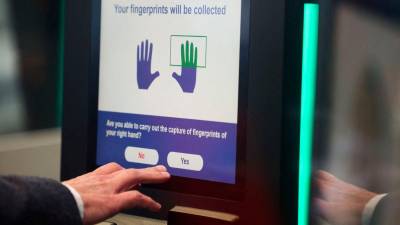FOLKESTONE: The European Union’s plan for a phased introduction of its new post-Brexit digital border system from next month should prevent long queues and confusion at the United Kingdom border.
Eurotunnel operator Getlink’s Chief Executive Officer Yann Leriche stated that the Entry/Exit System (EES) will launch on October 12 after significant delays.
EES is an automated system requiring travellers to register at the EU border by scanning their passport and providing fingerprints and a photograph.
It will eventually replace manual passport stamping for all non-EU citizens, helping the bloc track compliance with its 90-day visa-free travel rule and strengthen border controls.
The EU will implement the new system gradually over six months, meaning different ports and airports may have varying requirements until April 2026.
For British travellers using Eurotunnel at Folkestone, the Port of Dover, or Eurostar at St Pancras International, the process will occur at the border before they depart the UK.
Only freight and coach traffic will be subject to EES checks from October 12 at both the Eurotunnel terminal and Port of Dover.
Passenger vehicle checks will follow in November at Dover and by the end of the year at Eurotunnel.
Leriche expressed confidence that travellers would not experience any delays due to the gradual introduction.
Authorities will have the ability to suspend checks for short periods if processing times become excessively long, according to the CEO.
He referred to French border officials who can decide to proceed as slowly as necessary to ensure the system functions correctly.
Leriche emphasised that after the six-month phase-in period, the process would be perfectly manageable.
EES will be mandatory when entering Schengen area countries, which include non-EU nations like Iceland, Liechtenstein, Norway, and Switzerland.
The system does not apply to EU members Ireland and Cyprus.
EES serves as a precursor to the enhanced European Travel Information and Authorisation System, which will also require non-Schengen area citizens to pay a fee before travelling.
Since April, European visitors to Britain have had to purchase an electronic travel permit in advance for their trips. – Reuters
